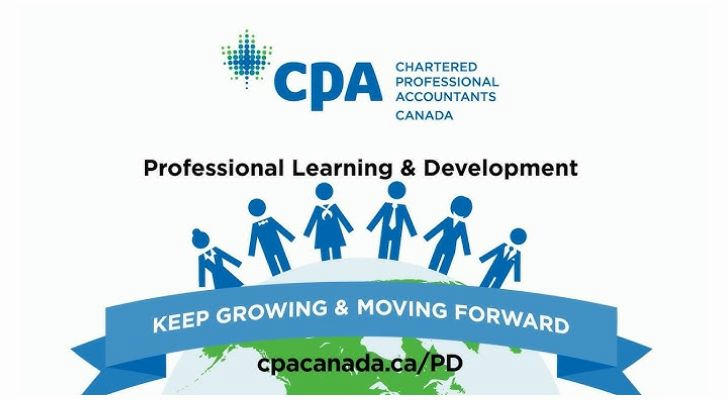Canada CPA Course: Exam Guide and Career Prospects
The Chartered Professional Accountant (CPA) designation is one of the most prestigious accounting certifications in Canada, recognized globally. Whether entering the fields of accounting, auditing, financial management, or simply seeking to enhance career competitiveness, obtaining a CPA certification opens up extensive opportunities. This article provides a comprehensive guide to the Canada CPA program, covering eligibility requirements, exam structure, study resources, and career prospects to help aspiring candidates prepare effectively.

Pain Points Addressed by the CPA Program
Many individuals face challenges when pursuing an accounting career, including the difficulty of distinguishing themselves in a competitive job market, lack of practical experience, and uncertainty about the best certification path. The Canada CPA program solves these problems by offering:
A Recognized Credential: Unlike other certifications, the CPA designation is highly valued by employers, offering an edge in job applications and career advancement.
Structured Learning Path: The CPA program is designed to ensure candidates gain both theoretical knowledge and practical experience, addressing concerns about hands-on training.
Clear Career Pathways: With a CPA certification, individuals can access diverse career opportunities in accounting, auditing, taxation, and financial management, along with the potential for higher salaries.
1. Overview of the Canada CPA Program
The CPA designation in Canada is governed by CPA Canada, the national body responsible for certification and professional education in accounting, finance, taxation, and auditing. This certification is not only valuable for accountants but is also widely applicable in corporate finance, consulting, and government sectors. CPAs play a crucial role in decision-making, risk management, and financial analysis, making them indispensable in today's business world.
Why Pursue a Canada CPA?
Higher Salary: CPA holders earn significantly higher salaries than non-certified professionals, with earnings increasing as experience grows.
Diverse Career Opportunities: CPAs can work in auditing, taxation, consulting, financial management, and other fields.
Global Recognition: CPA certification is recognized in multiple countries, including the U.S. and Australia, through mutual recognition agreements.
Career Stability and Growth: CPAs are in high demand across industries, ensuring job security and continuous career progression.
2. CPA Program Eligibility Requirements
To apply for the Canada CPA program, candidates must meet the following criteria:
Educational Requirements: A recognized undergraduate degree in Canada, typically including coursework in accounting, finance, and taxation.
Work Experience: Candidates must complete at least 30 months of relevant full-time work experience, which can sometimes be accumulated while pursuing certification.
International Candidates: Those with foreign degrees must undergo an educational assessment (such as WES evaluation) and may need to complete CPA preparatory courses.
Commitment to Professional Ethics: CPA candidates must adhere to high ethical standards and professional conduct guidelines.

3. Structure of the CPA Program
The CPA program consists of the following components:
(1) CPA Preparatory Courses
Designed for applicants who have not completed the necessary prerequisite coursework, covering fundamental subjects such as financial accounting, management accounting, and taxation.
(2) CPA PEP (Professional Education Program)
The core modules include:
Core 1: Financial reporting and accounting principles
Core 2: Management accounting
Elective Modules: Candidates can choose from audit, taxation, financial management, or performance management
(3) Common Final Examination (CFE)
The CFE is a three-day comprehensive examination that assesses candidates' proficiency in accounting principles and professional judgment. It is considered one of the most challenging parts of the CPA certification process, requiring extensive preparation and problem-solving skills.
4. Study Resources and Exam Preparation Tips
Official Resources
CPA Canada Website: Provides updated exam information, study materials, and training courses.
Big Four Accounting Firms (PwC, Deloitte, etc.): Offer CPA training and career development guidance.
Online Learning Platforms: Websites such as Coursera and Udemy provide CPA-related courses and tutorials.
Preparation Tips
Develop a Study Plan: It is recommended to prepare for the CFE at least 6-12 months in advance and allocate study time effectively.
Practice with Mock Exams: Familiarize with the exam format to improve speed and accuracy.
Join Study Groups: Collaborate with fellow candidates to enhance learning efficiency.
Seek Mentorship: Learning from experienced CPAs can provide valuable insights and study techniques.
5. CPA Program Costs and Return on Investment (ROI)
CPA Certification Costs
| Fee Category | Estimated Cost (CAD) |
|---|---|
| CPA Preparatory Courses | 2,500 - 4,000 |
| CPA PEP Program | 4,500 - 7,500 |
| CFE Exam Fee | 1,500 - 2,000 |
| Annual Membership Fee | 1,000 - 1,200 |
Salary Expectations for CPA Holders
Certified CPAs typically earn between CAD 80,000 and CAD 150,000 per year, with experienced professionals reaching over CAD 200,000. Additionally, CPA holders often receive bonuses, stock options, and other financial incentives, making it a lucrative career choice.
6. How to Enroll in the CPA Program?
Application Process
Verify Educational Requirements: International candidates must complete a WES assessment for degree recognition.
Register with a Provincial CPA Body: Each province (e.g., Ontario, British Columbia) has its own CPA organization, and registration is required at the provincial level.
Complete CPA Preparatory or PEP Courses.
Gain Work Experience: Accumulate 30 months of relevant experience in CPA-recognized firms or organizations.
Pass the CFE Exam: Once successful, candidates officially obtain CPA certification.

7. Frequently Asked Questions (FAQs)
(1) Which is better: CPA, CFA, or ACCA?
CPA: Ideal for careers in accounting, auditing, and financial management.
CFA: More suitable for investment management and financial analysis.
ACCA: A globally recognized accounting qualification, beneficial for those seeking international career opportunities.
(2) Can the CPA Program be completed online?
- Yes, most CPA courses are available online, although exams are generally conducted in person.
(3) In which countries is the Canada CPA recognized?
- The CPA designation is recognized through mutual agreements with accounting bodies in the U.S., Australia, and some European countries.
(4) What industries hire CPAs?
- CPAs are employed in various industries, including banking, consulting, technology, healthcare, government, and non-profits. Many CPAs also pursue entrepreneurship, leveraging their financial expertise to start businesses.
Conclusion
The Canada CPA program offers excellent career advancement opportunities for those pursuing careers in accounting, auditing, taxation, and financial management. With proper study planning and preparation, candidates can successfully pass the CPA certification and embark on a lucrative career path. By earning a CPA, candidates gain not only a prestigious credential but also access to a global network of professionals, making this certification an investment in a successful future.
